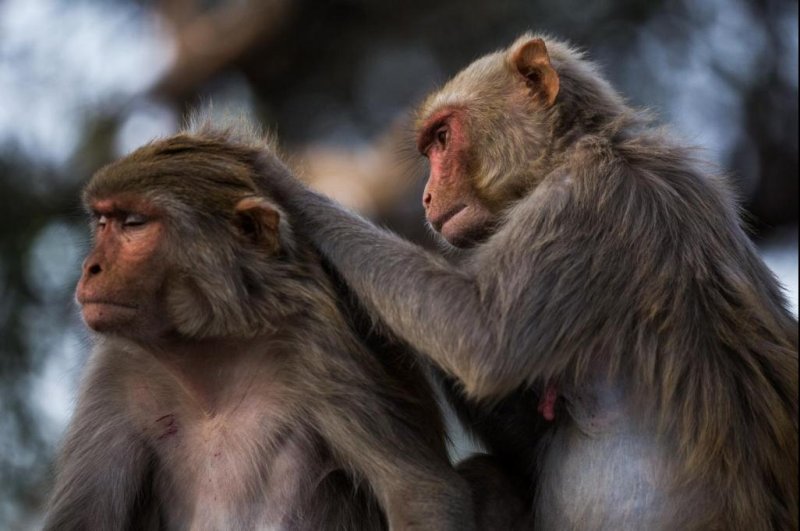New research suggests it's impossible to pinpoint the human brain's maximum capacity for social relations, contrary to the concept of Dunbar's number -- which was based on non-human primates. Photo by Johan Lind/N/Stockholm University
May 5 (UPI) -- If you want to have more than 150 friends, you can -- new research says not to let the British anthropologist Robin Dunbar stop you.
According to a new study, published this week in the journal Biology Letters, suggests "Dunbar's number," which puts an upper limit on the human brain's capacity for social relations, is mostly bunk.
At the end of the 20th century, Dunbar theorized that the human brain could maintain stable social relationships with no more than 150 people.
Dunbar arrived at the number after comparing neocortex size in the brains of non-human primates with their preferred group sizes.
In the latest study, researchers at Stockholm University, in Sweden, showed Dunbar's logic was flawed.
While a handful of studies have found limited empirical evidence for Dunbar's number, others have offered different upper limits for human social relations.
"The theoretical foundation of Dunbar's number is shaky," study author Patrik Lindenfors, an associate professor of zoological ecology at Stockholm University, said in a press release.
"Other primates' brains do not handle information exactly as human brains do, and primate sociality is primarily explained by other factors than the brain, such as what they eat and who their predators are. Furthermore, humans have a large variation in the size of their social networks," Lindenfors said.
For the new study, Lidenfors and his research partners repeated Dunbar's calculations using new and improved statistical methods, as well as updated data on primate brains.
According to the new analysis, the average upper limit for human social relations was significantly lower than 150 friends. However, the statistical methods split a much wider range of estimates -- from 2 to 520 friends.
"It is not possible to make an estimate for humans with any precision using available methods and data," said study co-author Andreas Wartel, research assistant at Stockholm University.
Dunbar's number, which was discussed extensively in Malcolm Gladwell's book "The Tipping Point," had a sizable influence on public discourse, moving law firms, publicly traded companies and even the Swedish Tax Authority to adjust their organizational structure and the sizes of their offices.
There surely is an upper limit to the social capacity of the human brain, but the authors of the latest study suggest that limit varies from person to person and is likely heavily influenced by cultural factors.
"New research on cultural evolution has revealed the importance of cultural inheritance for what humans do and how we think," said study co-author Johan Lind, deputy director of the Center for Cultural Evolution at Stockholm University.
"Culture affects everything from size of social networks to whether we can play chess or if we like hiking. Just like someone can learn to remember an enormous number of decimals in the number pi, our brain can be trained in having more social contacts," Lind said.















